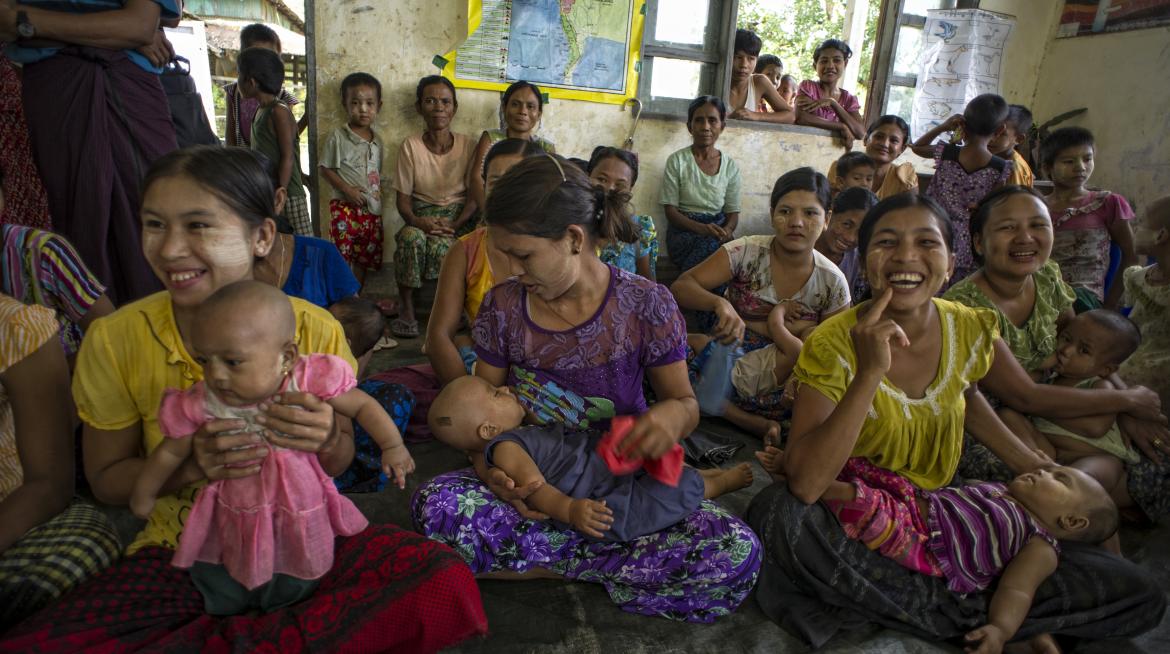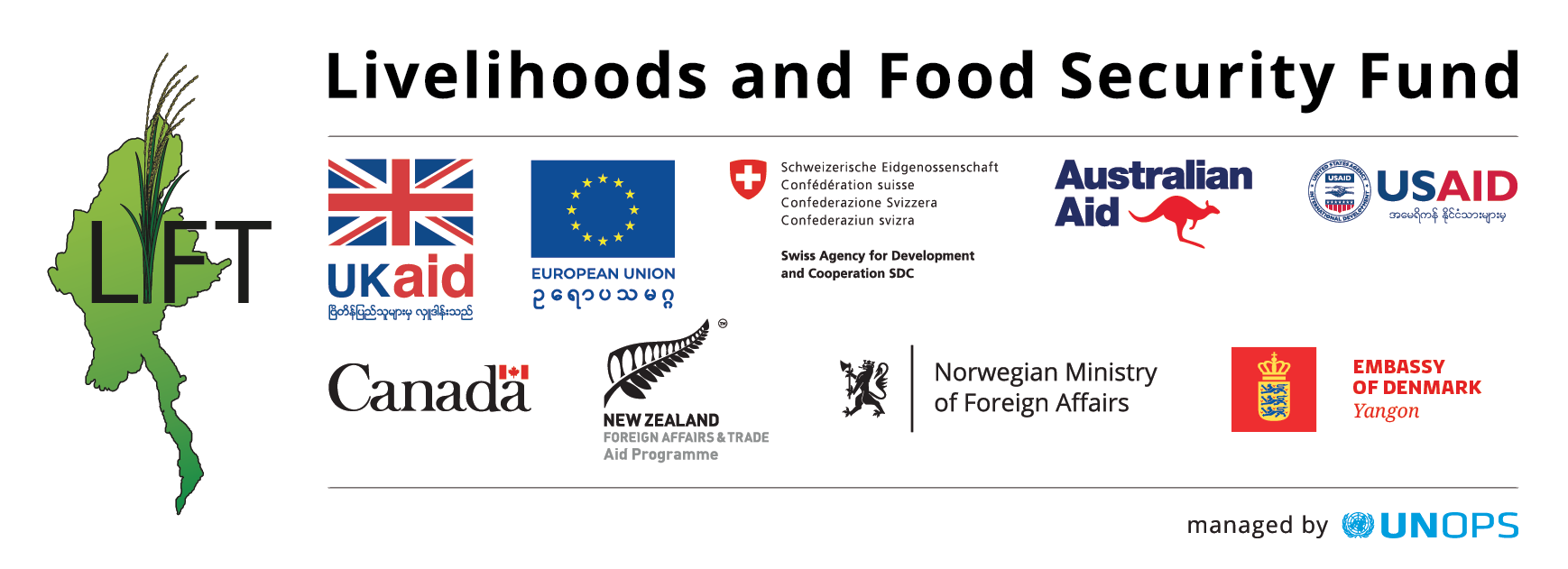
In line with the Scaling Up Nutrition and First 1,000 Days movement, LIFT is focused on reducing stunting in children. Providing maternal child cash transfers (MCCTs) to improve the health and diets of pregnant women and women with young children is one of the most innovative activities of Tat Lan Programme.
Starting in Rakhine in 2014, mothers were given a monthly stipend of 13,000 kyats (about USD 11) to buy nutritious food and access health services over the course of the first thousand days of a child’s life (conception until their second birthday). In addition to cash, pregnant women and mothers learned about the importance of a varied and nutritious diet. The Rakhine pilot was remarkably successful: mothers in the programme delivered heavier babies than mothers in the control group. In addition, exclusive breastfeeding amongst mothers in the intervention group doubled, and stunting rates decreased by five per cent, so similar projects are being introduced in the Delta and the Dry Zone.
 Supporting Mothers
Supporting Mothers
Six-month-old Sue Latt Nwe is a dynamic infant, sharing her thoughts in squeals and shouts. Despite the birth deformity in her right hand, she has been given a healthy start to her life.
Sue Latt’s mother Aye Aye Nwe belongs to the Lwan U village Mother-to-Mother Support Group. As a recipient of the Tat Lan Programme's MCCT project, the monthly transfer that Aye Aye Nwe receives ensured that she was well nourished during her pregnancy, and can afford nutritious food for Sue Latt when she starts solids, after six months of exclusive breast feeding. These first 1,000 days are the most critical for Sue Latt's growth and development and the most opportune time to prevent stunting.
Mothers’ diet during pregnancy, for newborn babies, and young children, can be dictated by tradition and food taboos. Often, grandmothers and elders insist they know what is best for their grandchildren. Tat Lan is challenging some misconceptions that have perpetuated Rakhine State’s propensity to stunting, such as not allowing new mothers to eat anything other than rice and salt for the first month after birth, and feeding new born babies powdered rice mixed with breast milk.
Today, Tat Lan programme assistant, Mar Mar Soe is talking with 16 mothers about the importance of colostrum (first milk). Rich in protein and vitamin A, colostrum also contains antibodies and other components that help to build a baby’s immunity, as well preventing jaundice. During the session the mothers discuss the nutritional value of breast milk and its easy availability, but there is a lot of debate about other varieties of milk available. This includes goats, cows and buffaloes’ milk, sweetened condensed milk and infant formula. However, the mothers rated infant formula last, because it had to be mixed with water that might not be clean.
An active participant in the debate, Than Than Win, 31, is mother to five-year-old Soe Pyin Win and 11-month Khin Moe San. As a first time mother she listened to her own mother, who taught her to feed the baby rice mixed with breast milk at one month, and encouraged Than Than to avoid meat and fish. However, through the support of the Tat Lan programme and a midwife, Than Than now knows all about the importance of feeding colostrum to her newborn, and breast feeding exclusively, for the first six months. As a participant in the MCT programme, Than Than Win says the money helped her purchase nutritious food and attend appointments with the midwife. “We needed the money because my husband is not fit. He was a farmer three years ago, but now he is in poor health and works in a small shop.”
When you look at the babies in this programme, there is no doubt the cash transfer has made a difference. They are well fed and full of vitality. Aung Kyaw Than, 10-months-old, nestles into his mother for a drink. Ma Saw Myint says her son eats everything and always wants her food. "The extra money made nutritious food affordable. For the first month I ate chicken eggs with rice, and now I have green vegetables for vitamins. I have a chronic illness, so the money also meant I could afford to see the midwife,"
Ma Saw Myint’s husband is one of 100 men in the village, out of 200 households, who has migrated in search of work. While she waits for him to return she is living with her mother.

Aye Aye Nwe also lives with her mother, because her husband has gone to Thailand. Though he transfers money home four times a year, she could not afford nutritious food before Tat Lan. The Mother-to-Mother Support Group gives Aye Aye Nwe confidence and knowledge. “Before the meeting I didn’t dare talk to other mothers, but when I realised I knew the answers to the tutor’s questions, my confidence grew. After my baby was born I could afford a chicken egg with rice. My baby is exclusively breast fed and when she is really hungry I let her feed more to stimulate my milk supply,” says Aye Aye Nwe, who is now saving money to see a specialist about Sue Latt’s hand.
Story by Jenny Macintyre, Communications Officer for Tat Lan, with technical input from Andrea Menefee from Save the Children. The Tat Lan programme is implemented by Save the Children, International Rescue Committee, Oxfam, CARE International, and Better Life Organisation.


